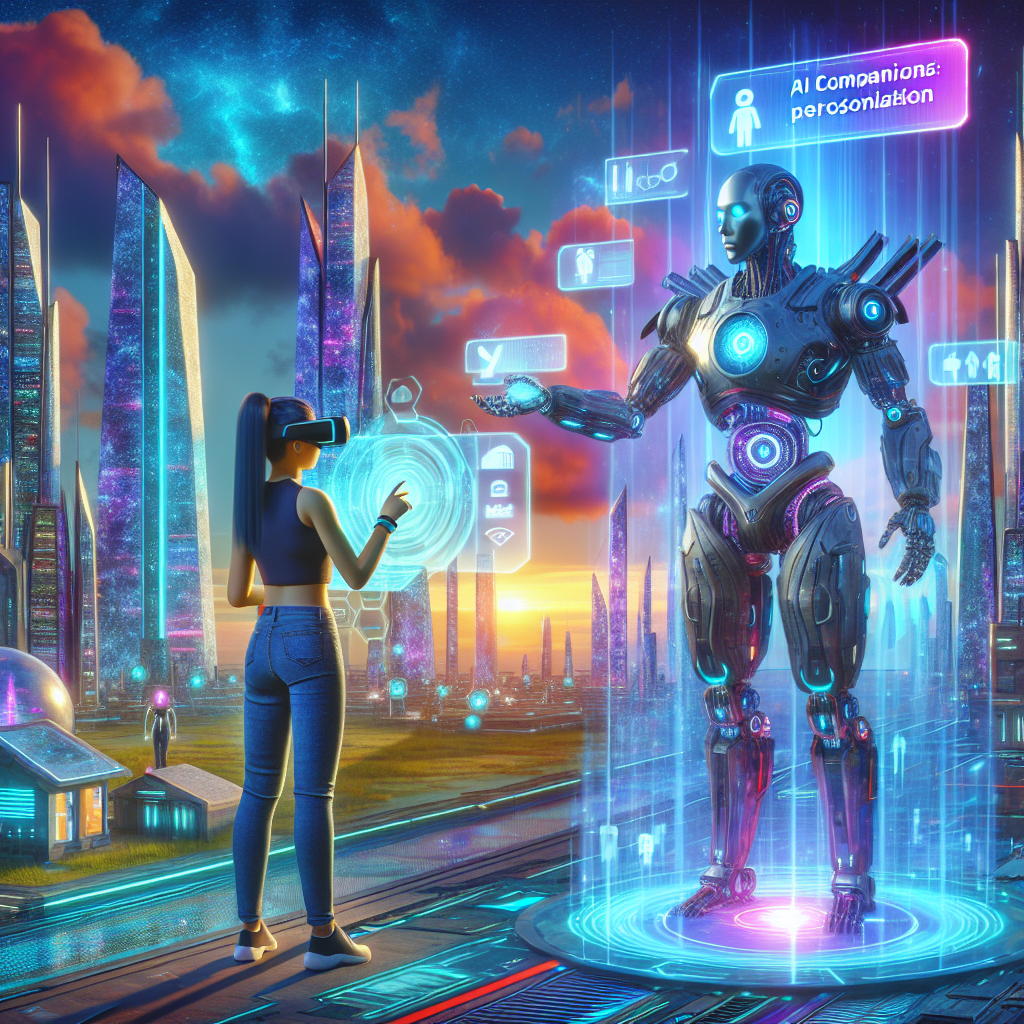AI Companions: The Future of NPCs and Personalization in 2025 Games
As the gaming industry continues to evolve, 2025 promises to be a remarkable year for interactive entertainment, particularly in the realm of Non-Playable Characters (NPCs). The advent of sophisticated artificial intelligence (AI) technologies is paving the way for more personalized and engaging gaming experiences, reimagining the role of NPCs as endearing companions rather than mere background figures. This article explores the implications of AI companions in gaming, how they enhance player engagement, and what the future holds for personalized tales in 2025.
The Evolution of NPCs
Traditionally, NPCs served as vessels for storytelling or gameplay mechanics, often relying on pre-written dialogue and predictable AI behavior. Game developers have made strides in creating immersive worlds filled with richly imagined characters; however, the interactions between players and NPCs have often felt simplistic and formulaic. With the developments in natural language processing, machine learning, and emotional AI, NPCs are set to undergo a significant transformation.
AI-Powered Personalization
By 2025, the integration of AI technologies will enable NPCs to function as dynamic companions whose interactions can adapt in real-time to the player’s actions, decisions, and emotional states. The personalization of these interactions will depend on algorithms that analyze player behavior, preferences, and even playstyle, allowing NPCs to offer tailored responses and quests that align more closely with individual player journeys.
For instance, players might find that an in-game companion notices their tendency to prioritize stealth tactics and will suggest more covert strategies or even react with surprise if the player chooses more aggressive methods. This level of adaptability will not only create more engaging gameplay but also foster a sense of connection between players and their AI companions.
Enhanced Emotional Depth
One of the most exciting prospects for AI companions is their ability to express and interpret emotions. Advances in emotional AI will allow NPCs to exhibit a range of emotions, responding to player actions with appropriate reactions. By 2025, we may see characters that not only express joy and sadness but also show concern, empathy, or friendship towards the player based on their choices.
Imagine embarking on an adventure with an NPC who becomes increasingly invested in your character’s well-being. If players make decisions that lead to failure, the NPC could express disappointment or concern, while successes could elicit joy and excitement. This emotional depth transforms NPCs into responsive allies, compelling players to invest more time and effort into the storyline and their companions.
Expansive Storylines and Relationships
With AI companions, the potential for expansive narratives grows exponentially. By leveraging procedural generation techniques combined with AI, developers can create branching storylines that react fluidly to player choices, reinforcing the relationship between the player and their companions. This means players may encounter unique plot developments and challenges based on their interactions—leading to a highly individualized gaming experience.
In 2025, players could find themselves engaging in complex relationships with AI companions that mirror real-life friendships or rivalries. Whether they partially align with or diverge from player goals, these relationships will add layers of depth and realism, encouraging players to think carefully about their decisions.
The Future of Multiplayer Experiences
AI companions are not limited to single-player experiences. The possibilities for multiplayer games are equally vast. By incorporating AI-driven characters into multiplayer environments, developers can create NPCs that fill gaps in gameplay. For instance, if a player is left without teammates in a co-op game, an AI companion could seamlessly step in, adapting its skill set to match the team’s needs.
Furthermore, as social dynamics become integral to gaming, AI companions can help manage group dynamics by identifying conflicts or encouraging cooperation. This evolution can help create a more harmonious and engaging multiplayer environment, making gaming not just a solitary experience but a socially rich one.
Challenges Ahead
While the future of AI companions is bright, challenges remain. Ethical considerations surrounding data privacy, the potential for over-reliance on AI companions, and ensuring diverse representation in character design all pose important hurdles for developers. Balancing AI’s intelligence with user agency will be crucial to avoid diminishing the player’s role in shaping their gaming narrative.
Conclusion
As we approach 2025, AI companions stand on the precipice of transforming the gaming landscape, promising a future where NPCs are no longer mere code but meaningful partners in adventure. With personalized interactions, emotional resonance, and evolving storylines, AI companions will create richer gaming experiences that resonate with players, making the journey more immersive and emotional. The future of gaming is bright—where companionship, adventure, and storytelling intertwine like never before. As we engage with these technological marvels, players will not just play games; they will live them.




